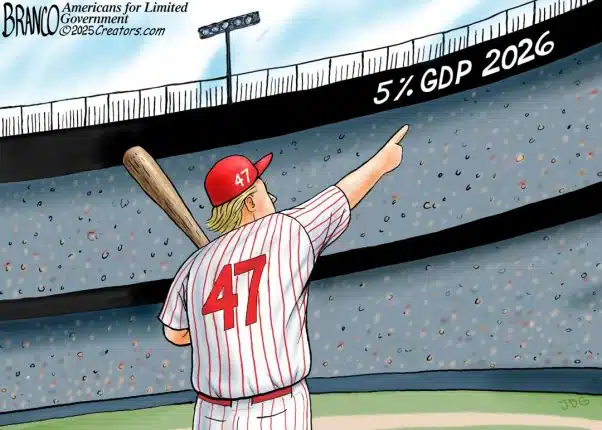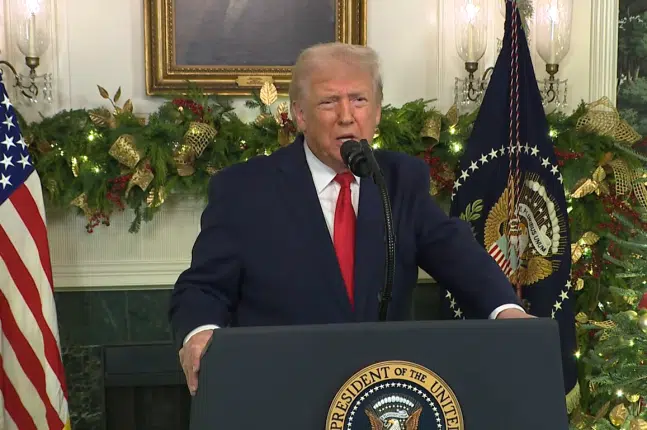 By Howard Rich — “Buy now, pay never.”
By Howard Rich — “Buy now, pay never.”
That’s the modus operandi of government at all levels, where a “high time” spending preference continues to flood our nation with a rising tide of red ink. “High time” spending — or the ongoing accumulation of present and future deficits to fund new entitlement promises — has reached epidemic proportions, and both major parties are guilty of fueling this worsening addiction.
What’s the solution? Obviously trusting politicians to implement even modest spending reforms is an exercise in futility. So if the politicians refuse to change, we must change them via mandatory rotation in office — or term limits. Otherwise the cycle will never be broken.
Here’s how “high time” works: To ensure their own reelection, politicians of both parties (and their appointed bureaucrats) will give a majority of voters whatever they want now without any regard whatsoever for the future fiscal consequences of their actions. And once a new program or benefit is established — it is virtually impossible to scale it back or eliminate it.
Education? Retirement? Affordable housing? Prescription drugs? Health care? There’s an entitlement for almost everything these days — an ongoing expansion that’s not only bankrupting future generations of taxpayers but perverting the proper role of government in the process. Thanks to our politicians’ perpetual promise making, the public debt has exploded (from 56.6 percent of GDP in 2011 to more than 105 percent of GDP today) while unfunded liabilities continue to soar (to more than $116 trillion).
This growth is no longer merely unsustainable — it’s downright insane. Yet nothing is being done to address it in Washington, D.C. or in state capitals across the country (see California and Illinois for two case studies of “high time” spending at the state level).
Even more problematic, this unprecedented escalation of unfunded promises is fundamentally eroding the very foundation of our nation – simultaneously incentivizing dependency and stifling productivity. With each new handout (welfare or corporate), government empowers the “takers” in our economy while placing a greater burden on the “makers” — simultaneously digging our hole even deeper while sapping us of the strength we’ll need to climb out of it.
This failure to rein in government growth in the face of an impending societal default has prompted the phrase “kicking the can down the road,” which voters hear ad nauseam on the campaign trail by candidates who (surprise) immediately start kicking the can down the road themselves once they’ve been elected.
Why can’t these “reformers” ever change anything? That’s easy: Because going along with this “high time” mentality has its rewards. With each round of new promises, upwardly mobile politicians receive key subcommittee assignments and chairmanships, and then key committee assignments and chairmanships — and eventually higher offices. Elected officials who don’t play by the “rules?” They get sent home.
This is why term limits is such an essential reform.
“The only way to permanently reform Washington and discourage corruption is to pass a term limits amendment to the Constitution,” says U.S. Sen. Jim DeMint (R-S.C.). “Our founding fathers warned us about creating a class of career politicians who amass personal power instead of fighting for the people they are supposed to represent.”
Indeed we were warned. Thomas Jefferson was an ardent proponent of term limits, deeming such reform necessary to “prevent every danger which might arise to American freedom” by politicians “continuing too long in office.” Similarly George Mason believed “nothing is so essential to the preservation of a republican government as a periodical rotation,” arguing that “nothing so strongly impels a man to regard the interest of his constituents as the certainty of returning to the general mass of the people, from whence he was taken, where he must participate in their burdens.”
Today, the people’s burden has reached truly startling dimensions — which is why our nation’s political class needs to start experiencing it firsthand as opposed to profiting from its incessant expansion.
According to recent polling data nearly three out of four Americans are in favor of term limits – a level of support that has remained constant for decades. What are our politicians waiting for? Either we heed the vox populi on this long-overdue reform or our “high time” addiction will exceed terminal velocity — if it hasn’t already.
The author is chairman of Americans for Limited Government.






